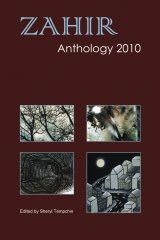 Zahir Anthology 2010 edited by Sheryl Tempchin is now available. From the quarterly online magazine, Zahir: A Journal of Speculative Fiction, this anthology is the complete collection from 2010. “The collection includes twenty-four stories from all over the rich and varied map of speculative fiction. Some are recognizable as sci-fi, fantasy, or magical realism, while others seem to have invented categories all their own. Works of luminous imagination and psychological depth, these are stories that will stay with you long after you’ve closed the book and turned out the light.”
Zahir Anthology 2010 edited by Sheryl Tempchin is now available. From the quarterly online magazine, Zahir: A Journal of Speculative Fiction, this anthology is the complete collection from 2010. “The collection includes twenty-four stories from all over the rich and varied map of speculative fiction. Some are recognizable as sci-fi, fantasy, or magical realism, while others seem to have invented categories all their own. Works of luminous imagination and psychological depth, these are stories that will stay with you long after you’ve closed the book and turned out the light.”
Poetry :: Home Ec by Linda King
From “Home Ec” by Linda King:
We practiced the art
of radish roses, broccoli florets,
celery stuffed with cheese. Baked soufflés.
Brought it all to the table—oven mitted and apronned
in our own hopsack embroidered creations.
[read the rest: Apple Valley Review]
CFS Anthology :: Children and War
This CFS was previously posted, but the editor is still accepting submissions: Children and War (working title)
When American politicians mention the “hidden costs” of war, they are referring to inflation, higher taxes, and medical care for veterans of U.S. wars. Even when we invoke images of human suffering, children and teenagers are often the forgotten part of the story.
Yet who can forget images of the Vietnam “baby lift,” when Amer-Asian children were flown out of Vietnam to the U.S. to be adopted by American families? Who can forget the horror of learning that Iranian children were being sent on suicide missions to clear landmines? Who wasn’t captivated by stories of the “lost boys” of Sudan, who traveled thousands of miles alone through the desert, seeking shelter and safety?
Children, like adults, lose their homes and families during war. They may travel for miles, alone or with others. They become refugees and victims of rape; they are recruited as soldiers; they suffer from PTSD, starvation, malnutrition, disease, and disability. In a recent report, UNICEF stated that from 1985-1995, over 2 million children had been killed in war; 4-5 million had been left disabled; over 12 million had become homeless; more than 1 million had been orphaned or separated from their parents; and over 10 million suffered psychological trauma. Their experiences affect the next generation as well.
This anthology, to be published by Cinco Puntos Press in 2011 or 2012, will explore all angles of children’s and teenagers’ experiences in war. The core of the book will be personal essays, memoirs, journalistic accounts, and historical narratives, both previously published and original pieces. It may also include photos, artwork, posters, and other debris that depicts the effects of war on children and teens. Though the book will be primarily non-fiction, we may include some fiction, and we are willing to consider pieces about both current and past wars. “War” is defined liberally to include both “official,” declared wars as well as secret, unofficial wars, such as those carried out by governments on civilians in places like Chile, Argentina, and Zimbabwe.
All submissions, queries, and suggestions should be sent to J.L. Powers at [email protected]
All acceptances are conditional. The publisher exercises final editorial control over which pieces will be included.
St. Lawrence Book Award Winner
Katie Umans has won the 2010 St. Lawrence Book Award with her manuscript Flock Book. Katie will receive in $1,000 in prize money and a publication contract from Black Lawrence Press.
The semi-finalists are listed here and the finalists are listed here.
Rattle Poetry Prize Winners
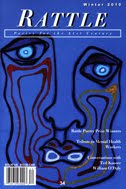 Issue #34 (Winter 2010) of Rattle: Poetry for the 21st Century includes the winner of the Rattle Poetry Prize, Patricia Smith, as well as the honorable mentions: Michele Battiste, Heidi Garnett, Valentina Gnup, francine j. harris, Courtney Kampa, Devon Miller-Duggan, Andrew Nurkin, Laura Read, and Scott Withiam.
Issue #34 (Winter 2010) of Rattle: Poetry for the 21st Century includes the winner of the Rattle Poetry Prize, Patricia Smith, as well as the honorable mentions: Michele Battiste, Heidi Garnett, Valentina Gnup, francine j. harris, Courtney Kampa, Devon Miller-Duggan, Andrew Nurkin, Laura Read, and Scott Withiam.
Interview :: NYQ Editor Raymond Hammond
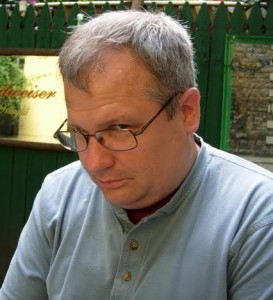 The Best American Poetry December 11 section Meet the Press features an interview by Nin Andrews with Raymond Hammond, editor of NYQ Books and The New York Quarterly, exploring the history of the press, the kinds of books the press looks to publish, promoting poetry books to readers, and much more.
The Best American Poetry December 11 section Meet the Press features an interview by Nin Andrews with Raymond Hammond, editor of NYQ Books and The New York Quarterly, exploring the history of the press, the kinds of books the press looks to publish, promoting poetry books to readers, and much more.
Commenting on NYQ Books press, Hammond says: “The first premise was to say to ourselves, ‘Poetry doesn’t sell.’ And while this statement sounds self-defeating and is open to all sorts of debate and sounds like a cry of desperate mediocrity, there is an element of truth to it which immediately removes any grand expectations that we will sell thousands of copies of each book we publish. By removing this expectation, we can publish and keep in print books that don’t immediately sell right alongside books that do, and we are hoping that eventually the press will work as a single organism, some books supporting the others—but keeping all in print.”
Paul Dry Books Holiday Discount
Enter the coupon code HOLIDAY during checkout to receive a 25% discount on all Paul Dry Books until December 15 – as well as free shipping.
New Lit on the Block :: The Fiddleback
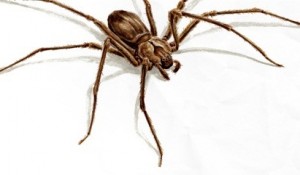 The Fiddleback is a new online bi-weekly publishing poetry, fiction, nonfiction, and reviews as well as featuring one artist and one musician/band in every issue. Founded by Jeff Simpson “during the great recession of 2010,” with “cross-pollination” The Fiddleback will be a “mixing and colliding artistic disciplines to attract a diverse readership.” Works by new as well as established writers and artists will be featured.
The Fiddleback is a new online bi-weekly publishing poetry, fiction, nonfiction, and reviews as well as featuring one artist and one musician/band in every issue. Founded by Jeff Simpson “during the great recession of 2010,” with “cross-pollination” The Fiddleback will be a “mixing and colliding artistic disciplines to attract a diverse readership.” Works by new as well as established writers and artists will be featured.
The first issue features fiction by David Hollander, Alexandra Sadinoff, and Dinah Cox; poetry, Lisa Lewis, Nate Pritts, Clay Matthews, Tom C. Hunley, Steven D. Schroeder, and Jenny Yang Cropp; nonfiction, Andrew Merton and Gina Vozenilek; music reviews and an interview with “Other Lives”; an interview with artist George Boorujy.
The Fiddleback reads year-round and is published bi-monthly.
Behind the scenes at The Fiddleback are Jeff Simpson – Founding Editor; Labecca Jones – Senior Poetry Editor; Daniel Long – Senior Fiction Editor; Brian Gebhart – Senior Fiction Editor; Jessica Hendry Nelson – Senior Nonfiction Editor; Chelsey Simpson – Senior Nonfiction Editor; James Brubaker – Senior Music Editor; and Joshua Cross – Senior Music Editor.
CFS :: Women Writing on Family Anthology
Women Writing on Family: Tips on Writing, Teaching and Publishing
Book Publisher: The Key Publishing House Inc., publisher of academic and non-academic books, Toronto, Ontario
Submissions are being sought for an anthology about writing and publishing by women with experience in writing and publishing about family. Possible subjects: using life experience; networking; unique issues women must overcome; formal education; queries and proposals; conference participation; self-publishing; teaching tips. Tips on writing about family: creative nonfiction, poetry, short stories, nonfiction, novels.
Practical, concise, how-to articles with bullets/headings have proven the most helpful to readers. Please avoid writing too much about “me” and concentrate on what will help the reader. No previously published, co-written, or simultaneously submitted material.
Foreword by Supriya Bhatnagar, Director of Publications, Editor of The Writer’s Chronicle, Association of Writers & Writing Programs, George Mason University. Author of the memoir: and then there were threeŠ (Serving House Books, 2010)
Afterword by Dr. Amy Hudock, co-editor of Literary Mama chosen by Writers Digest as one of the 101 Best Web Sites for Writers. She teaches creative writing and co-edited American Prose Writers (Seal Press, 2006)
Co-Editor Carol Smallwood appears in Who’s Who of American Women, Michigan Feminist Studies, The Writer’s Chronicle. She’s included in Best New Writing in Prose 2010. Her 23rd book is Writing and Publishing: The Librarian’s Handbook (American Library Association, 2010). A chapter of newly published Lily’s Odyssey was short listed for the Eric Hoffer Prose Award; a book trailer of Contemporary American Women: Our Defining Passages is http://il.youtube.com/watch?v=8M6m7PXGQIU&feature=related
Co-Editor Suzann Holland, 2010 Winner of Public Libraries Feature Award, secured the permission of the Laura Ingalls Wilder estate for the forthcoming: The Little House Literary Companion. Her masters degrees include history, library science: she taught English composition, information literacy, at William Penn University, was a librarian at Milwaukee Public Library, a consultant in Davenport, Iowa. Her anthology contributions appear in: Greenwood Press, Neal-Schuman, the American Library Association
Please send 2-3 possible topics you would like to contribute each described in a few sentences and a 65-75 word bio using the format like the bio’s above. Please send in a .doc Word file by December 30, 2010 using FAMILY/Your Name on the subject line to [email protected]. You’ll receive a Go-Ahead and guidelines if your topics haven’t been taken. Contributors will be asked to contribute a total of 1900-2100 words. Those included in the anthology will receive a complimentary copy as compensation.
CFS :: Women and Poetry Anthology
Women and Poetry: Tips on Writing, Teaching and Publishing by Successful Women Poets
Book Publisher: McFarland & Company, Inc.
Contributors needed for articles about: websites for women poets, using life experience, magazine markets, networking, managing family, blogs, unique issues women must overcome, lesbian and bisexual poetry, continuing education, queries and proposals, anthologies, conference participation, contests, promotion, self-publishing, teaching tips, and other areas women poets are interested.
Practical, concise, how-to articles with bullets/headings have proven the most helpful.
Please avoid writing too much about “me” and concentrate on what will most help the reader. No previously published, co-written, or simultaneously submitted material.
Foreword: Molly Peacock, the author of six books of poetry, including The Second Blush (W.W. Norton and Company, 2008).
Co-editor Carol Smallwood is a 2009 National Federation of State Poetry Societies award winner included in Who’s Who of American Women who has appeared in Michigan Feminist Studies, The Writer’s Chronicle. She’s included in Best New Writing in Prose 2010. Her 23rd book is Writing and Publishing: The Librarian’s Handbook (American Library Association, 2010). The first chapter of Lily’s Odyssey (2010) was short listed for the Eric Hoffer Prose Award; chapbook by Pudding House Publications; http://www.youtube.com/watch?v=8M6m7PXGQIU
Co-editor Colleen S. Harris is a 2010 Pushcart Prize nominee. Her book of poetry, God in My Throat: The Lilith Poems (Bellowing Ark Press, 2009), was a finalist for the Black Lawrence Book Award. Her second and third books, These Terrible Sacraments and Gonesongs, are forthcoming in 2011. Colleen holds an MFA degree in writing and has appeared in The Louisville Review, Wisconsin Review, River Styx, and Adirondack Review, among others. Her work has been included in Library Journal, and Contemporary American Women: Our Defining Passages.
Please send 2-3 topics you would like to contribute each described in a few sentences and a 65-75 word bio using the format of the bio’s above. Please send in a .doc Word (older version) file by December 30, 2010 using POETS/your last name on the subject line to [email protected]. You will receive a Go-Ahead with guidelines if your topics haven’t already been taken. Contributors will be asked to contribute a total of 1900-2100 words. Those included in the anthology will receive a complimentary copy as compensation.
Dalkey Archive Press Holiday Sale
Today is the final day of the Dalkey Archive Press Holiday Sale: 10 books for $70 or 20 books for $125 (individual copies or multiple copies of the same book). The offer applies to all trade paperbacks and issues of the Review of Contemporary Fiction published before November 2010 (scholarly titles are not included). Free shipping in the US.
Tony Hoagland’s Appeal on behalf of Dean Young
If you are reading this, you are probably a friend of Dean Young and/or a friend of poetry. And you may have heard that our friend is in a precarious position. Dean needs a heart transplant now. He also needs your assistance now.
Over the past 10 or 15 years, Dean has lived with a degenerative heart condition–congestive heart failure due to idiopathic hypotropic cardiomyopathy. After periods of more-or-less remission, in which his heart was stabilized and improved with the help of medications, the function of his heart has worsened. Now, radically.
For the last two years he has had periods in which he cannot walk a block without resting. Medications which once worked have lost their efficacy. He is in and out of the hospital, unable to breathe without discomfort, etc. Currently, Dean’s heart is pumping at an estimated 8% of normal volume.
In the past, doctors have been impressed with his ability to function in this condition. But now things are getting quickly worse. Dean has been placed on the transplant list at Seton Medical Center Austin, and has just been upgraded to a very critical category. He’s got to get a heart soon, or go to intermediate drastic measures like a mechanical external pump.
Whatever the scenario, the financial expenses, both direct and collateral, will be massive. Yes, he has sound health insurance, but even so, he will have enormous bills not covered by insurance–which is where you can help, with your financial support.
If you know Dean, you know that his non-anatomical heart, though hardly normal, is not malfunctioning, but great in scope, affectionate and loyal. And you know that his poetry is what the Elizabethans would have called “one of the ornaments of our era”–hilarious, heartbreaking, courageous, brilliant and already a part of the American canon.
His 10-plus books, his long career of passionate and brilliant teaching, most recently as William Livingston Chair of Poetry at the University of Texas at Austin; his instruction and mentorship of hundreds of younger poets; his many friendships; his high, reckless and uncompromised vision of what art is: all these are reasons for us to gather together now in his defense and support.
Joe Di Prisco, one of Dean’s oldest friends, is chairing a fundraising campaign conducted through the National Foundation for Transplants (NFT). NFT is a nonprofit organization that has been assisting transplant patients with advocacy and fundraising support since 1983.
If you have any questions about NFT, feel free to contact the staff at 800-489-3863. You may also contact Joe personally at [email protected].
On behalf of Dean, myself, and the principle of all our friendships in art, I ask you to give all you can. Thanks, my friends.
Yours,
Tony Hoagland
You can help.
To make a donation to NFT in honor of Dean, click here. If you’d prefer to send your gift by mail, please send it to the NFT Texas Heart Fund, 5350 Poplar Avenue, Suite 430, Memphis, TN 38119. Please be sure to write “in honor of Dean Young” on the memo line.
Thank you for your generosity!
Patient Health Institute: Seton Medical Center
Children’s Books :: Baxter, the Pig Who Wanted to Be Kosher
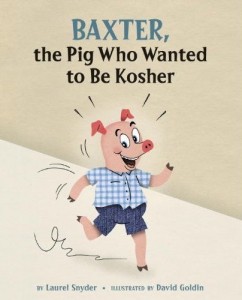 Just when you thought you’d read ’em all: Baxter, the Pig Who Wanted to Be Kosher.
Just when you thought you’d read ’em all: Baxter, the Pig Who Wanted to Be Kosher.
Author Laurel Snyder is joined by artist David Goldin in this newest of her books and novels for children. I first met Laurel about six years ago at a FLAC conference, and her energy and enthusiasm left an indelible mark in my memory. This book brought back a rush of those memories, as I could almost hear the joyful nature of her voice across every page.
Baxter, yes a pig in a human world, in a chance encounter with a man at a bus stop, hears about Shabbat dinner – the candles, the dancing, the singing. Baxter can’t stop thinking of it as the week progresses and returns to the bus stop to find out how he can become “a part of” Shabbat dinner. Of course, a different stranger he encounters at the stop tells Baxter he can’t be “a part” of the dinner because he’s “not kosher.”
Not knowing what this means, Baxter sets out to become kosher, each time based on comments from a stranger he meets. First he eats (too many) pickles, then eats (too much) challah, and finally tries to become a cow by eating clover and wearing horns. All of this comes to an end when he meets Rabbi Rosen at the bus stop, who explains to him what kosher means – and Baxter’s shock at the realization that if he were kosher, he’d be eaten! Grateful he is NOT kosher, he takes up Rabbi Rosin’s invitation to attend shabbat at her home and enjoys all he had been longing for – including eating (too much) kugel.
By title alone, this book is a curiosity. Reading it is pure delight as Snyder quickly develops Baxter’s personality as curious, eager to learn, and wanting so badly to belong. The story is supplemented with a brief glossary at the end, which continues the story in Synder’s voice, such as this entry for rabbi: “learned, generous Jewish leader who devotes time to reading, thinking, teaching, and helping people (and pigs!). Rabbis often tell wonderful stories, wear hats, and have nice laugh wrinkles.”
Goldin’s illustrations and Synder’s text are well balanced. Golin’s illustrations are a mixed media, including photographs with drawings. Baxter pants and shirt are photographed images of cloth, the food – such as whitefish salad, knish, pickled eggs, and challah – are also photographs. This blend is engaging for children, who can recognize the difference and enjoy the “reality” of some of the images in the story. There are full color illustrations on every page, some full bleed, some insert, each busy enough to entertain readers with new discoveries in multiple readings.
Terrance Hayes Edits Ploughshares
The newest issue of Ploughshares (Winter 2010-11) is edited by Terrance Hayes, who also write the introduction to the issue (“Introduction: The Sentenced Museum” full-text online). Also included in the print issue is the profile “About Terrance Hayes” by Robert C. Casper.
Apply Now for Cali Poet Laureate
The application for California Poet Laureate is now open. The submission deadline is February 1, 2011.
Poetry Q&A Issue and Online Educational Resources
 The December 2010 issue of Poetry is a special “Question and Answer issue” with Michael Robbins, Paula Bohince, Tom Pickard, John Tranter, Charles Baxter, Jane Hirshfield, Clemente R
The December 2010 issue of Poetry is a special “Question and Answer issue” with Michael Robbins, Paula Bohince, Tom Pickard, John Tranter, Charles Baxter, Jane Hirshfield, Clemente R
Books :: For the Cook on Your List (Yourself Included)
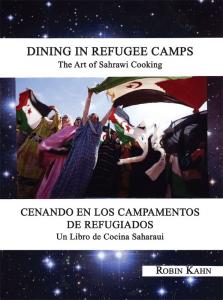 Dining in Refugee Camps: The Art of Sahrawi Cooking
Dining in Refugee Camps: The Art of Sahrawi Cooking
Cenando en los Campamentos de Refugiados: Un Libro De Cocina Saharaui
by Robin Kahn
From the publishers site: “A full-color, bilingual, collage journal that documents Robin Kahn’s month cooking with the women of the Western Sahara. As a guest artist selected to participate in ARTifariti 2009, Kahn stayed with Sahrawi families living in refugee camps in Algeria and in the desert of The Free Territories of the Western Sahara. There she created the collages for this publication by combining the sparse materials available locally with photos, recipes, histories and drawings. The result is a 50-page full-color journal that examines the art of Sahrawi food production: how kitchens are improvised, food is procured and prepared, and traditional recipes are innovated from UN rations and international aid. The book is a testament to the daily struggles of Sahrawi women whose role is to provide sustenance, fortitude and comfort inside a compromised society.”
Hayden’s Ferry AWP Intro Award Winners
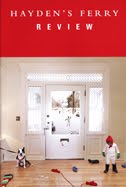 Hayden’s Ferry Issue 47 (Fall/Winter 2010-2011) includes the winners of the AWP Intro Awards: M.X. Wang for his story (fiction) “With Consideration and Care” and Jenn Bazzell for her poem “Wet Field.”
Hayden’s Ferry Issue 47 (Fall/Winter 2010-2011) includes the winners of the AWP Intro Awards: M.X. Wang for his story (fiction) “With Consideration and Care” and Jenn Bazzell for her poem “Wet Field.”
Film :: Little Town of Bethlehem
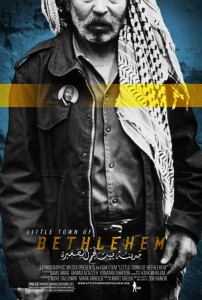 Little Town of Bethlehem is a groundbreaking new documentary that shares the gripping story of three men — a Palestinian Muslim, a Palestinian Christian, and an Israeli Jew — born into violence and willing to risk everything to bring an end to violence in their lifetime.
Little Town of Bethlehem is a groundbreaking new documentary that shares the gripping story of three men — a Palestinian Muslim, a Palestinian Christian, and an Israeli Jew — born into violence and willing to risk everything to bring an end to violence in their lifetime.
Sami Awad is a Palestinian Christian whose grandfather was killed in Jerusalem in 1948. Today he is the executive director of Holy Land Trust, a non-profit organization that promotes Palestinian independence through peaceful means. Yonatan Shapira is an Israeli Jew whose grandparents were Zionist settlers who witnessed the birth of the Israeli nation. Today he is an outspoken advocate for the nonviolent peace movement, both in his homeland and abroad. Ahmad Al’Azzeh is a Palestinian Muslim who has lived his entire life in the Azzeh refugee camp in Bethlehem. Today, Ahmad heads the nonviolence program at Holy Land Trust, where he trains others in the methods of peaceful activism.
Little Town of Bethlehem was produced by EthnoGraphic Media (EGM), an educational non-profit organization exploring the critical issues of our time. Copies of the film are available for half price through December. Screening copies with full screening kits are available for schools, churches, clubs, groups, or local theaters.
Wallace Stevens Moves to John Hopkins
Effective January 2011, John Hopkins University Press will assume all aspects of managing and publishing The Wallace Stevens Journal for the Wallace Stevens Society. A new editorial team as well as readers will be put into place for upcoming issues.
Memoir (and) on Pants on Fire
 In her Editorial Board Chair’s Note to the newest issue (v3 n2) of Memoir (and), Claudia Sternbach comments on (re)reading Frank McCourt’s Angela’s Ashes:
In her Editorial Board Chair’s Note to the newest issue (v3 n2) of Memoir (and), Claudia Sternbach comments on (re)reading Frank McCourt’s Angela’s Ashes:
“But as popular as the life story of McCourt is, there are those who take issue with it. Those who question McCourt’s ability to recall in such great detail events which took place decades ago. How could he remember which of his brothers begged for berries or the look on his mother’s face when she had to plead for an egg or the head of a pig for her children to eat at Christmas.
“These are fair questions. If I can’t remember what I had for dinner last night or whether I recharged my cell phone this morning, how can a writer sit down at his desk and starting with words, build sentences, paragraphs, pages, and finally an entire life story like a bricklayer constructs a solid house? And would a reader trust the construction?
“We have been taken a few times, I’ll admit. Well-regarded memoirists have turned out to be not so honest. Their pants burst into flames and it makes news. But I believe it makes news because it is rare. For the most part I believe when people sit down to tell their story, they do their best to tell it with truth. Their truth. And that is the key. They are communicating to the reader what they remember. They are spilling out on the page those images and sounds they have carried with them their entire lives.”
Exactly.
Chad Walsh Poetry Prize Winner
 Charles Wyatt of Nashville, Tennessee, is the 2010 winner of the Beloit Poetry Journal’s annual Chad Walsh Poetry Prize. The editors of the BPJ select on the basis of its excellence a poem or group of poems they have published in the calendar year to receive the award. This year’s choice is a group of poems from “Thirteen Ways of Looking at Wallace Stevens” that appeared in the Spring 2010 issue. The awarding of this year’s prize to Wyatt also gives the journal the opportunity to recognize the extraordinary body of his work it has published beginning in 1965.
Charles Wyatt of Nashville, Tennessee, is the 2010 winner of the Beloit Poetry Journal’s annual Chad Walsh Poetry Prize. The editors of the BPJ select on the basis of its excellence a poem or group of poems they have published in the calendar year to receive the award. This year’s choice is a group of poems from “Thirteen Ways of Looking at Wallace Stevens” that appeared in the Spring 2010 issue. The awarding of this year’s prize to Wyatt also gives the journal the opportunity to recognize the extraordinary body of his work it has published beginning in 1965.
Allison Joseph Tribute
 Volume 4 (2010) of Reverie: Midwest African American Literature includes a special tribute to Allison Joseph, Aquarius Press Legacy Award Recipient. Several of Joseph’s poems are featured in addition to an interview by Curtis L. Crisler and tribute poems by Van G. Garrett and Phillip Williams.
Volume 4 (2010) of Reverie: Midwest African American Literature includes a special tribute to Allison Joseph, Aquarius Press Legacy Award Recipient. Several of Joseph’s poems are featured in addition to an interview by Curtis L. Crisler and tribute poems by Van G. Garrett and Phillip Williams.
I-90ers – Submit to Sean Thomas Dougherty
Sean Thomas Dougherty (Broken Hallelujahs, and Sasha Sings the Laundry on the Line both from BOA Editions) will be the guest editor for Redactions: Poetry & Poetics issue 14 the I-90 Revolution. “It’s I-90 becuase I-90 runs the breadth of the country. It’s 3,099.07 miles long and runs from Boston to Seattle,” writes editory Tom Holmes. “…we are inviting people who live within 50 miles of I-90 to submit poems. Make sure you first read the I-90 Manifesto…then send in your poems that are written in the spirit of the I-90 Manifesto.” Non-I-90ers are also welcome to submit their works.
Pongo Receives Microsoft 25k Fellow
Congratulations to Pongo Teen Writing Project founder Richard Gold for being awarded the Microsoft Integral Fellow. Pongo will receive a $25K financial award and has the promise of significant support from the Microsoft Alumni Foundation and from Gold’s fellow Microsoft alumni in the coming year.
Open Minds Poetry Contest HM
The Fall 2010 issue of Open Minds Quarterly: Your Psychosocial Literary Journal includes the honorable mentions of the 2010 BrainStorm Poetry Contest. This is the eighth annual poetry contest for mental health consumers and include works by Catherine Martell, Eufemia Fantetti, Zan Bockes, Kate Flaherty, Anthony Chalk, Mark Murphy, E.V. Noechel, Brock Moore, Christopher Gaskins, Lisa Morris, Jerome Frank, Debrenee Adkisson, Gail Kroll, Diane Germano, Carla E. Anderton, Monika Lee, John Parsons, and Robin Barr Hill.
Narrative 30 Below Contest Winners
Narrative has named the finalists and winners for their 30 Below Contest 2010 (All entrants in the Contest were between the ages of eighteen and thirty.):
FIRST PRIZE
Kevin González – “Cerromar”
SECOND PRIZE
Jacob Powers – “Safety”
THIRD PRIZE
Erika Solomon – “Rules for Jews in Damascus”
FINALISTS
Caroline Arden
Stephanie DeOrio
Katharine Dion
Kelly Luce
Michael Nardone
Hannah Sarvasy
Samantha Shea
Douglas Silver
Cam Terwilliger
Jessica Wilson
The Fall 2010 Story Contest, with a $3,250 First Prize, a $1,500 Second Prize, a $750 Third Prize, and ten finalists receiving $100 each. Open to fiction and nonfiction. All entries will be considered for publication. Contest deadline: November 30, midnight, Pacific standard time.
Tupelo Press Recieves NEA Grant
Rocco Landesman, Chairman of the National Endowment for the Arts, announced that Tupelo Press has been approved for a grant of $20,000 to support production, publication and promotion of thirteen exceptional books of poetry, fiction, and literary nonfiction. Tupelo Press is one of 1,057 not-for-profit organizations recommended for a grant as part of the federal agency’s first round of fiscal year 2011 grants. In total, the Arts Endowment will distribute $26.68 million to support projects nationwide.
Film :: Amazon Studios
According to Reuters: “Amazon starts Amazon Studios offering almost $3 mil for scripts and films; Warner Bros has “first-look” rights to produce.”
Glimmer Train September Fiction Open Winners :: 2010
Glimmer Train has just chosen the winning stories for their September Fiction Open competition. This competition is held quarterly and is open to all writers for stories with a word count range between 2000 – 20,000. The next Fiction Open will take place in December. Glimmer Train’s monthly submission calendar may be viewed here.
First place: Lydia Fitzpatrick [pictured] , of Brooklyn, NY, wins $2000 for “In a Library, in Saltillo.” Her story will be published in the Winter 2012 issue of Glimmer Train Stories.
Lydia Fitzpatrick [pictured] , of Brooklyn, NY, wins $2000 for “In a Library, in Saltillo.” Her story will be published in the Winter 2012 issue of Glimmer Train Stories.
Second place: Andrea Scrima, also of Berlin, Germany, wins $1000 for “Leaving Home.”
Third place: Brenden Wysocki, of Marina del Rey, CA, wins $600 for “A Dodgy Version.”
A PDF of the Top 25 winners can be found here.
Short Story Award for New Writers Deadline: November 30
This competition is held quarterly and is open to all writers whose fiction has not appeared in a print publication with a circulation over 5000. No theme restrictions. Word count should not exceed 12,000. (All shorter lengths welcome.) Click here for complete guidelines.
Can Technology End Poverty?
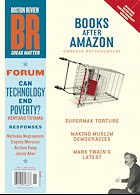 The lead essay in the Nov/Dec 2010 issue of Boston Review forum by Kentaro Toyama, Can Technology End Poverty?, is available full-text online with responses from Nicholas Negroponte, Dean Karlan, Ignacio Mas, Nathan Eagle, Jenny C. Aker, Christine Zhenwei Qiang, Evgeny Morozov, and Archon Fung and a final reply by Kentaro Toyama. The forum is also open to reader responses.
The lead essay in the Nov/Dec 2010 issue of Boston Review forum by Kentaro Toyama, Can Technology End Poverty?, is available full-text online with responses from Nicholas Negroponte, Dean Karlan, Ignacio Mas, Nathan Eagle, Jenny C. Aker, Christine Zhenwei Qiang, Evgeny Morozov, and Archon Fung and a final reply by Kentaro Toyama. The forum is also open to reader responses.
Penguin Classic Postcards
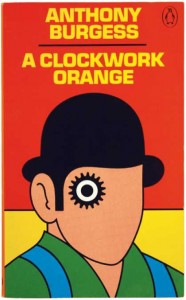 Penguin Books now has a collection of 100 postcards, each featuring a different and iconic Penguin book jacket. The Los Angeles Times has photos of a selection of these classic images.
Penguin Books now has a collection of 100 postcards, each featuring a different and iconic Penguin book jacket. The Los Angeles Times has photos of a selection of these classic images.
NANO Fiction Prize Winner
 Michael Palmer, winner of the Second Annual NANO Prize, has his winning piece, “Miles,” in the newest issue of NANO Fiction (v4 n1).
Michael Palmer, winner of the Second Annual NANO Prize, has his winning piece, “Miles,” in the newest issue of NANO Fiction (v4 n1).
The Immortality of Fairy Tales
“About 50 years ago, critics were predicting the death of the fairy tale. They declared it would fizzle away in the domain of kiddie literature, while publishers sanitized its ‘harmful’ effects. Academics, journalists and educators neglected it or considered it frivolous…” (Read the rest: Why Fairy Tales are Immortal by Jack Zipes from Globe and Mail.)
Poets Introducing Poets :: dg nanouk okpik
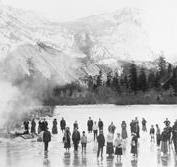 Poet Lore‘s Fall 2010 issue introduces the poems of native Alaskan dg nanouk okpik in their feature Poets Introducing Poets. Poet Lore Editors writer: “Nowhere are the effects of climate change more palpable than in the far North. Ms. okpik’s ritualistic narratives – steeped in Inuit folklore and sobered by the rudimentary predicaments of survival – conjure up a way of life as miraculous and endangered as the Arctic itself. In ‘Oil is a People,’ she writes: ‘I see the pipeline cracking, the Haul road / paved. I fall asleep as you are dancing / with the dead….’ Is this a vision? A warning? The eerie lines do what poetry does best: unsettle us with the truth – and maybe move us toward it.” Poet D. Nurkse introduces okpik’s poetry, of which 12 pieces featured.
Poet Lore‘s Fall 2010 issue introduces the poems of native Alaskan dg nanouk okpik in their feature Poets Introducing Poets. Poet Lore Editors writer: “Nowhere are the effects of climate change more palpable than in the far North. Ms. okpik’s ritualistic narratives – steeped in Inuit folklore and sobered by the rudimentary predicaments of survival – conjure up a way of life as miraculous and endangered as the Arctic itself. In ‘Oil is a People,’ she writes: ‘I see the pipeline cracking, the Haul road / paved. I fall asleep as you are dancing / with the dead….’ Is this a vision? A warning? The eerie lines do what poetry does best: unsettle us with the truth – and maybe move us toward it.” Poet D. Nurkse introduces okpik’s poetry, of which 12 pieces featured.
Artistic Merits of Fictive Sex
What is Good Sex vs. Bad Sex writing in literary fiction? Is there even a “need” for fictive sex in this day and age?
“Nobody needs it anymore”, says Rhoda Koenig [co-founder, along with Auberon Waugh, of the Bad Sex Award]. “Not that long ago, people would read quality fiction (as well as, of course, lots of rubbish) to discover what actually went on during sex, how people did it. Virgins wanted information, and experienced people wanted inspiration. If you were too young or poor to buy pornography or instruction books and had to go to the library, it was a lot less embarrassing checking out Lady Chatterley than a sex manual.”
Read more: Bad Sex Please, We’re British: Can Fictive Sex Ever Have Artistic Merit? by Arifa Akbar for The Independent.
Iran Poetry Volume
 The Atlanta Review has announced that their spring IRAN Issue will be published in an expanded book version by Michigan State University Press, similar to the IRAQ Issue (Flowers of Flame) published in 2008.
The Atlanta Review has announced that their spring IRAN Issue will be published in an expanded book version by Michigan State University Press, similar to the IRAQ Issue (Flowers of Flame) published in 2008.
American Short(er) Fiction Prize Winners
American Short Fiction‘s Shorter Fiction First Place Winner Jen Percy (“Field Trip”) and Second Place Winner Hillery Hugg (“The Tomb”) have their works published in most recent (Fall 2010) issue of the magazine.
Fifth Wednesday Guest Editors
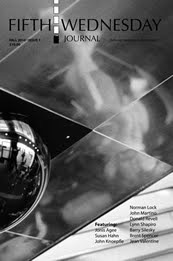 Fifth Wednesday Journal has announced its guest editors for their spring 2011 issue: Guest Poetry Editor: Michael Anania and Guest Fiction Editor: Carolyn Alessio.
Fifth Wednesday Journal has announced its guest editors for their spring 2011 issue: Guest Poetry Editor: Michael Anania and Guest Fiction Editor: Carolyn Alessio.
Brave New World Banned
Nathan Hale High School (Seattle) has banned Aldous Huxley’s classic novel Brave New World. Oh, it is indeed a new world – though I’m not so sure it’s brave.
Are Lesbians Going Extinct? Part Two
Trivia: Voices of Feminism 11, edited by Lise Weil and Betsy Warland, is the magazine’s longest issue published to date and the second in a two-part series featuring writers responding — in prose and poetry — to the question “Are Lesbians Going Extinct?”.
Contributors include Sima Rabinowitz, Verena Stefan, Kate Clinton, Lauren Crux, Sarah Schulman, Susan Hawthorne, Arleen Paré, Renate Stendhal, Urvashi Vaid, Erin Graham, Bev Jo, Christine Stark, Elana Dykewomon, Sharanpal Ruprai, Elizabeth X, Lyn Davis, Monica Meneghetti, Betsy Warland, Lise Weil, Harriet Ellenberger, and Michèle Causse.
Editor-in-chief Lisa Weil will be stepping down with this issue and the magazine is in search of new leadership. Information about the changeover and contacting the publication is available at the close of Weil’s editorial.
Tribute to Ai
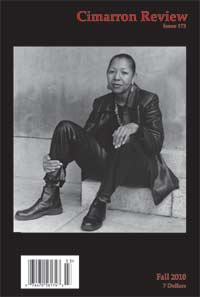 The most recent issue of Cimarron Review is a tribute to the poet Ai (1947 – 2010). Nonfiction includes works by Lisa Lewis, Guest Editor whose work “Ai in Oklahoma” opens the issue, Dagoberto Gilb (“Poet Ai” available online), Clay Matthews, Chip Livingston, Rigoberto González, and Janet Varnum’s interview with Ai. Works of poetry include authors Yun WangMonique S. Ferrell, Labecca Jones, Jeff Simpson, Kimiko Hahn (“Theft” available online), Samantha Thornhill, Patricia Smith (“The Day Before What Could be the Day” available online),Cyrus Cassells, Ralph Burns, Oliver de la Paz, and Marilyn Chin (“Naked I Come, Naked I Go” available online). Cover image by Christopher Felver – “The Poet Ai at the Los Angeles Book Fair.”
The most recent issue of Cimarron Review is a tribute to the poet Ai (1947 – 2010). Nonfiction includes works by Lisa Lewis, Guest Editor whose work “Ai in Oklahoma” opens the issue, Dagoberto Gilb (“Poet Ai” available online), Clay Matthews, Chip Livingston, Rigoberto González, and Janet Varnum’s interview with Ai. Works of poetry include authors Yun WangMonique S. Ferrell, Labecca Jones, Jeff Simpson, Kimiko Hahn (“Theft” available online), Samantha Thornhill, Patricia Smith (“The Day Before What Could be the Day” available online),Cyrus Cassells, Ralph Burns, Oliver de la Paz, and Marilyn Chin (“Naked I Come, Naked I Go” available online). Cover image by Christopher Felver – “The Poet Ai at the Los Angeles Book Fair.”
Narrative Poetry Contest Winners
Narrative Magazine Second Annual Poetry Contest Winners
First Place: Kate Waldman
Second Place: Lillian-Yvonne Bertram
Third Place: Ezra Dan Feldman
Finalists:
Mermer Blakeslee
Laton Carter
Katharine Coles
Maria Hummel
Gray Jacobik
Jenifer Browne Lawrence
Lynn Melnick
Steve Price
Marsha Rabe
Christie Towers
The Narrative Magazine Fall 2010 Story Contest is still open to fiction and nonfiction. All entries will be considered for publication. Deadline: November 30, at midnight, Pacific standard time.
Bookstore for Sale :: Globe Corner Bookstore
“Citing health reasons, the president of the Globe Corner Bookstore said yesterday that he plans to sell the 28-year-old Harvard Square travel book and map specialty shop and online store.” (Reading more: Boston.com)
Remembering Bill Bauer
 The latest edition of Fiddlehead (Autumn 2010) includes “Remembering Bill Bauer (1932 – 2010)” an editorial by Brian Bartlett. Bill Bauer had been Co-Editor, Assistant Poetry Editor, and Poetry Editor for nearly ten years, then Fiction Co-Editor for two years, and published two full-length collections of poetry with Fiddlehead Poetry Books, along with several other collections of poetry and short stories. Bill Bauer was lost to his battle with cancer in June of 2010.
The latest edition of Fiddlehead (Autumn 2010) includes “Remembering Bill Bauer (1932 – 2010)” an editorial by Brian Bartlett. Bill Bauer had been Co-Editor, Assistant Poetry Editor, and Poetry Editor for nearly ten years, then Fiction Co-Editor for two years, and published two full-length collections of poetry with Fiddlehead Poetry Books, along with several other collections of poetry and short stories. Bill Bauer was lost to his battle with cancer in June of 2010.
The editorial is followed by several of Bauer’s poems, including one previously unpublished work.
Some Advice on ePublishing
Previously mentioned in a post on the C4 Fiction Anthology, this online “bonus” published by the editors of C4 provides some honest insight on publishing and distributing an e-book: Publishers Lie and Other Lessons Learned from Publishing “The Chamber Four Fiction Anthology”. It’s the kind of advice people look for.
CV2 Celebrates 35 Years
Canadian poetry lit mag Contemporary Verse 2 is celebrating 35 years of publishing. The newest issue (Summer 2010) is the first of two issues looking back over these three and a half decades – starting with “The Early Years” – the first ten years of the journal’s history. Included is an interview with Robert Enright, “CVII’s first book review editor and one of its founding staff,” and “some of the archival materials still in CVII’s posession, including originals of the late bpNichol – editorial reports and the one poem published by CVII.”
CVII is also planning a number of celebratory events and a coast to coast reading tour. Check their website for more information.
Barns + Poetry + Art = Cool Stuff
 Artist Bill Dunlap was selected recently to do a series of murals on barns across Maryland. Each mural will be a text and image piece featuring poetry. The project is organized by the University of Maryland Art Gallery in College Park, and is called “Poetic Aesthetic in Rural Maryland.”
Artist Bill Dunlap was selected recently to do a series of murals on barns across Maryland. Each mural will be a text and image piece featuring poetry. The project is organized by the University of Maryland Art Gallery in College Park, and is called “Poetic Aesthetic in Rural Maryland.”
Why barns and why poetry? Dunlap writes on his blog, “I think it’s because they go so well together. This is a chance to bring art out of galleries and urban settings and put it in rural areas where it is rarely seen. And those kinds of peaceful settings are perfect places to take in a bit of poetry as well.”
Dunlap has completed the first mural on a barn near Gaithersburg, MD. The barn is owned by a company of glass blowers called The Art of Fire. The painting is 10 ft tall and about 43 ft long and features the poem “Lost” by David Wagoner.
Dunlap plans to complete five more murals throughout 2011.
ALA Stonewall Book Award
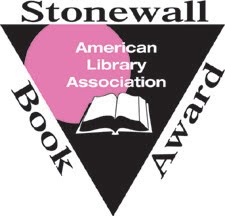 The first and most enduring award for GLBT books is the Stonewall Book Awards, sponsored by the American Library Association’s Gay, Lesbian, Bisexual, and Transgendered Round Table. Since Isabel Miller’s Patience and Sarah received the first award in 1971, many other books have been honored for exceptional merit relating to the gay/lesbian/bisexual/transgendered experience.
The first and most enduring award for GLBT books is the Stonewall Book Awards, sponsored by the American Library Association’s Gay, Lesbian, Bisexual, and Transgendered Round Table. Since Isabel Miller’s Patience and Sarah received the first award in 1971, many other books have been honored for exceptional merit relating to the gay/lesbian/bisexual/transgendered experience.
A Richard Wilbur Symposium
 Field‘s Fall 2010 issue features a symposium on the work of Richard Wilbur, including his poem “The Beautiful Changes,” with essays by Bruce Weigl, Annie Finch, Steve Friebert and Stuart Friebert, DeSales Harrison, David Young, Beckian Fritz Goldberg, Carole Simmons Oles, and Stephen Tapscott.
Field‘s Fall 2010 issue features a symposium on the work of Richard Wilbur, including his poem “The Beautiful Changes,” with essays by Bruce Weigl, Annie Finch, Steve Friebert and Stuart Friebert, DeSales Harrison, David Young, Beckian Fritz Goldberg, Carole Simmons Oles, and Stephen Tapscott.

